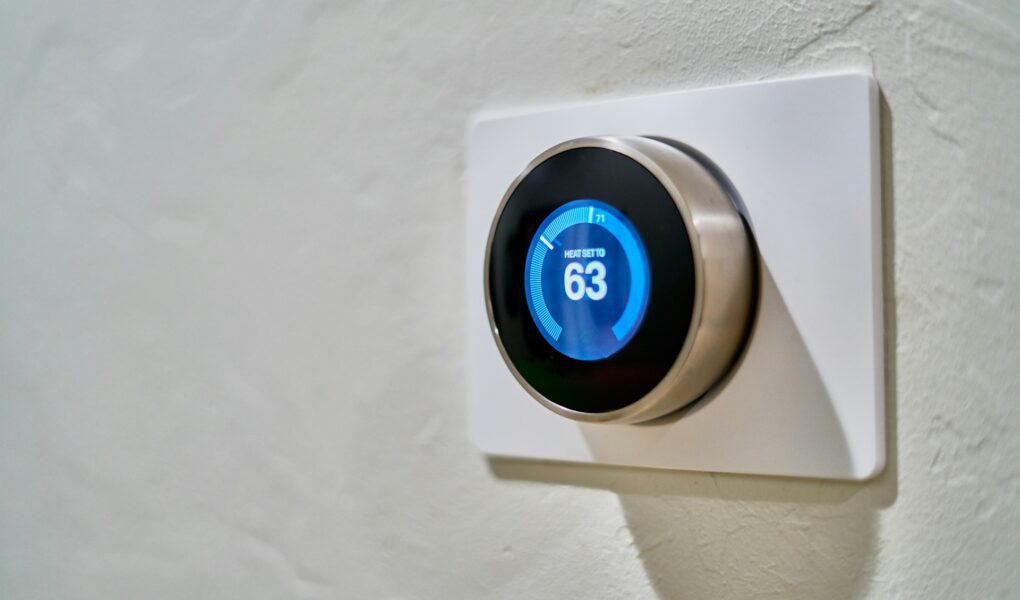The evolution of home heating technologies indicates our growing commitment to sustaining the environment and improving energy efficiency. It’s an exciting time as innovation provides many heating options tailored to the dual demands of comfort and ecological responsibility. This deep dive into the world of environmentally considerate heating systems promises to inform how we can heat our homes more sustainably without forgoing warmth and coziness.
Discussing heating advancements means looking beyond the traditional methods to find ingenious solutions that reduce waste and environmental impact. For instance, turning our attention to the merits of advanced heat pumps, solar heating systems, and other sustainable technologies demonstrates an industry pivoting towards renewable energy sources and more intelligent management systems. The drive to integrate these solutions, particularly ones that make significant strides, is changing the landscape for the better.
Key Takeaways:
- Integrating eco-friendly heating options is becoming essential for a sustainable home life.
- Innovative heating systems like heat pumps and smart thermostats are the linchpins of energy efficiency.
- Upgrades to energy-efficient models are supported by financial incentives, making them accessible to more homeowners.
Contents
Table of Contents
- Introduction to Modern Heating Innovations
- Insulation and Ventilation: Complementary Strategies for Efficient Heating
- Understanding Heat Pumps as a Sustainable Choice
- Geothermal Heating: Tapping into Earth’s Natural Warmth
- The Emergence of Biomass Heating Systems
- The Role of High-Efficiency Furnaces
- Making Use of the Sun’s Power for Solar Heating
- Smart Thermostats: A Key to Energy Savings
- Hydronic Heating Systems: Comfort Through Warm Water\
- Financial Incentives and Rebates for Eco-Friendly Heating Upgrades
Introduction to Modern Heating Innovations
Home heating is primed with advancements that promote synergy between thermal comfort and doing right by the environment. Innovations include adaptable systems that provide heating and cooling and methodologies for capturing and repurposing thermal energy. Such progressive tech reflects a significant change in our approach to home heating—no longer a mere necessity, it’s now an opportunity for stewardship.
Insulation and Ventilation: Complementary Strategies for Efficient Heating
Good insulation must be balanced in the pursuit of heating efficiency. Proper insulation acts as a thermal barrier, keeping the heat where it’s needed and reducing the workload on heating systems. When coupled with intelligent ventilation strategies, the preservation of indoor air quality is ensured without undercutting thermal performance.
By auditing and improving insulation and ventilation systems, homeowners can make their homes bastions of thermal efficiency. These improvements, often simple and cost-effective, can enhance the effectiveness of modern heating technologies and even the air conditioning system, contributing significantly to home energy efficiency.
Understanding Heat Pumps as a Sustainable Choice
Heat pumps are a beacon for green heating technologies. Working on the principle of heat transfer, they are exceptionally adept at utilizing the omnipresent ambient energy from the natural environment, delivering warmth to homes in a more energy-conservative way than traditional heating systems. This transferability means they can adapt to various climatic conditions, making them a preferred choice worldwide.
Delving deeper into the viability of heat pumps, the U.S. Department of Energy highlights their role as energy-saving stalwarts, capable of slashing electricity usage for heating purposes by approximately 50% relative to older systems. Acknowledging heat pumps for their dual functionality—heating and cooling—is essential, as the changeover between these modes can generate continuous comfort with less energy expenditure.
Geothermal Heating: Tapping into Earth’s Natural Warmth
Geothermal heating capitalizes on the stable temperatures available just below the Earth’s surface, providing a consistent energy source for home heating needs. By leveraging this reliable energy, geothermal systems operate with a high degree of efficiency, translating to lower ongoing costs and a significantly minimized carbon footprint for the household.
Economic and ecological benefits aside, the allure of geothermal heating also lies in its longevity and low maintenance requirements. These systems are designed for durability, often outlasting more conventional heating setups and making them an investment that bears fruit well into the future.
The Emergence of Biomass Heating Systems
Biomass heating, which utilizes natural materials for energy, is one of the oldest forms of heating known to humanity. However, with contemporary engineering, these systems exhibit excellent efficiency with minimum emissions. This resurgence demonstrates a meaningful shift towards renewable resources in the heating industry and a commitment to cleaner energy systems.
Progress in boiler technology ensures that the combustion of biomass fuels is cleaner and more productive. Whereas traditional systems may have generated considerable waste and pollution, modern setups are a testament to the advancements made in eco-friendly heating, providing sustainable warmth with a small environmental footprint.
The Role of High-Efficiency Furnaces
High-efficiency furnaces are the perfect option in areas with more stringent heating requirements requiring a solid heat source. These advanced furnaces operate at peak performance while ensuring sustainability isn’t compromised. The technology transforms a significant portion of energy into direct heat, reducing wasteful dissipation and bolstering the environment and economic savings.
Modern furnaces boasting top-tier Annual Fuel Utilization Efficiency (AFUE) ratings are innovation-worthy for their technological prowess and capacity to significantly pare down household energy bills. Phasing into a high-efficiency furnace can instigate appreciable returns on investment through long-term reductions in monthly utility costs while advancing environmental conservation goals.
Making Use of the Sun’s Power for Solar Heating
Solar heating systems are leading the way in sustainable home heating because the sun is an endless supply of clean energy. These systems are adept at reducing reliance on ecologically detrimental fossil fuels, and their functionality aligns perfectly with eco-conscious home management practices. Integrating solar heating systems can work harmoniously with existing heating solutions or even stand alone as a primary heat source.
With appropriate installation and maintenance, solar heating can yield a cycle of benefits: the energy provided by the sun for heating reduces the need for additional energy generation from traditional, non-renewable sources. This results in an effective reduction in operational costs and a commendable stride toward reduced carbon emissions.
Smart Thermostats: A Key to Energy Savings
Smart thermostats, intuitively designed interfaces, and user-friendly programming are the vanguard of intelligent home heating management. These thermostats can be managed remotely, learn household routines, and make energy-saving adjustments autonomously. This level of control presents an unprecedented opportunity for homeowners to maximize their energy savings without sacrificing comfort.
Recommendations by robust programs like ENERGY STAR underscore the potential of smart thermostats to economize on heating bills. Seamlessly fitting into the modern smart home ecosystem, such devices embody the fusion of convenience and conservational awareness—characteristics quintessential to the future of home heating.
Hydronic Heating Systems: Comfort Through Warm Water
Hydronic systems are revitalized by modern technological refinements and offer a serene and even heat distribution. The transfer of warmth through water in a closed-loop system ensures a uniform thermal presence, eliminating the uneven temperatures often associated with conventional forced-air systems. It’s a silent, comforting heat embraced by homeowners interested in energy efficiency and higher degrees of comfort.
Substantial advancements in these systems make them highly efficient and an intelligent choice for home heating. Modern hydronic heating can be significantly more cost-effective than traditional methods, given its ability to localize heating to occupied spaces and provide consistent temperatures that resist the fluctuations of outdoor climates.
Financial Incentives and Rebates for Eco-Friendly Heating Upgrades
Environmental considerations often accompany financial planning, especially home upgrades. Many governments and agencies now offer incentives and rebates to offset the costs of installing energy-efficient heating systems. These programs are designed to ease homeowners’ transitions, making it financially feasible to switch to greener technologies.
Such incentives allow for initial economic relief in upgrading to a modern heating system, paving the way for long-term energy savings and contributing to a greener planet. As a bonus, those who upgrade can enjoy a warmer, greener, and more economical home to run for years.




